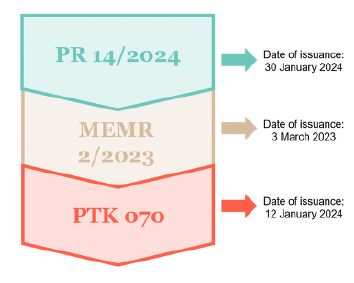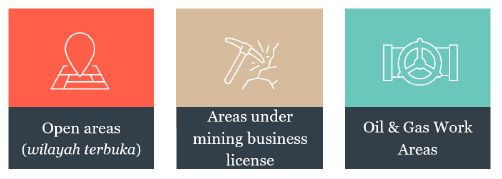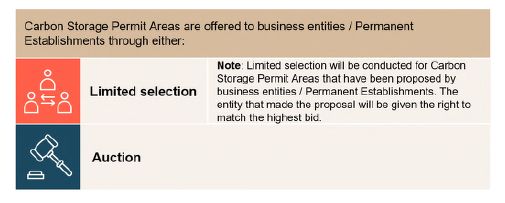Background
Following the issuance last year of an initial regulation on Carbon Capture and Storage (CCS) and Carbon Capture Utilization and Storage (CCUS) for Upstream Oil-and-Gas Business Activities (MEMR 2/2023 – see our previous article here), the Indonesian government recently issued a much broader overarching framework on the Organization of CCS Activities (PR 14/2024) which came into force on 30 January 2024.
Recognizing the role of CCS technology in mitigating carbon emissions from certain "hard to abate" sectors (such as oil & gas, steel, cement and other heavy industries) and Indonesia's vast geological potential, the regulation provides a framework for CCS activities and projects to be implemented across the Indonesian archipelago. PR 14/2024 lays out licensing requirements and the process to award rights over CCS work areas from exploration to end-of-life. It also opens the door to cross-border transportation and the storage of CO2 generated outside Indonesia (albeit limited to a maximum of 30% of the relevant storage work area capacity).
Besides PR 14/2024 which is meant to act as the umbrella regulation for CCS in Indonesia, a further technical regulation1 on the Implementation of CCS and CCUS in Oil & Gas Work Areas (PTK-070) has also recently been issued by the Special Working Unit for the Organization of Upstream Oil-and-Gas Business Activities (SKK Migas). PTK-070 is an implementing regulation of MEMR 2/2023 providing additional details on procedures and requirements for upstream oil and gas contractors engaging in CCS/CCUS within their designated Work Areas.

1. Overview of PR 14/2024
Summary:
PR 14/2024 is a substantial and detailed regulation spanning 77 articles.
The main areas of coverage of PR 14/2024 are as follows:
- Implementation of CCS activities based on cooperation contracts;
- Carbon Storage Permit Areas and the tendering process for awarding such areas;
- CO2 exploration, storage and transport stages;
- Closure of CCS activities;
- CO2 storage capacity for domestic needs;
- Ownership of CCS assets;
- Cross-border transportation of CO2;
- Business schemes for CCS activities;
- Incentives available for CCS projects;
- MRV;
- Environmental and safety requirements; and
- Sanctions.
Key concepts:
PR 14/2024 introduces certain concepts which are used throughout the regulation and define its scope of coverage:
- Carbon2 (CO2) is defined as carbon dioxide (CAS 124-38-9) with certain concentration specifications originating from emissions captured and processed using various technologies by observing good engineering standards and principles, originating from upstream oil and gas business activities, power generation, industry, and other emission producing activities produced domestically or abroad with the aim of being injected into an injection target zone.
- Injection Target Zone3 (zona target injeksi or ZTI), is defined as a rock system in a geological formation consisting of storage zone layers, buffer zone layers, impermeable zone layers and geological traps that are able to accommodate injected CO2, safely and permanently while meeting environmental safety standards.
1.1 Implementation of CCS based on Cooperation Contracts
The procedure for implementation of CCS activities in Oil & Gas Work Areas by contractors based on cooperation contracts (PSCs) with SKK Migas or the Aceh Migas Organizational Body (Badan Pengelola Migas Aceh or BPMA)4 is described in Articles 4-8 of PR 14/2024. These provisions are aligned with the framework previously set out in MEMR 2/2023, which preceded the issuance of PR 14/2024 and was focusing on the implementation of CCS/CCUS by contractors in the upstream oil & gas sector. Please refer to our previous article for an overview of the implementation of CCS based on PSCs.
1.2 Carbon Storage Permit Areas
Separately from the regime for contractors based on PSCs, CCS activities may also be conducted by other parties in "Carbon Storage Permit Areas" which consist of:5

Business entities incorporated in Indonesia or Permanent Establishments6 can propose Carbon Storage Permit Areas to MEMR7 who in turn prepares and determines the Carbon Storage Permit Areas by conducting (i) an initial risk evaluation and (ii) a review of relevant technical data on the Carbon Storage Permit Area.
If a proposed area is overlapping or within an area under a mining business license or oil & gas work area, MEMR shall conduct the initial risk and technical evaluation by obtaining data through data utilization cooperation or joint utilization of surface facilities.8

To view the full article please click here.
Footnotes
1 PTK-070/SKKIA0000/2024/S9.
2 Article 1(2) of PR 14/2024.
3 Article 1(4) of PR 14/2024.
4 Depending on the location of the Work Area.
5 Article 9, PR 14/2024.
6 Article 1(21) of PR 14/2024 defines Permanent Establishments as business entities that are established and incorporated outside of the territory of Indonesia which carry out activities within the territory of Indonesia and are obliged to comply with the laws and regulations that are prevailing in Indonesia.
7 Article 10, PR 14/2024.
8 Article 10, PR 14/2024.
The content of this article is intended to provide a general guide to the subject matter. Specialist advice should be sought about your specific circumstances.







